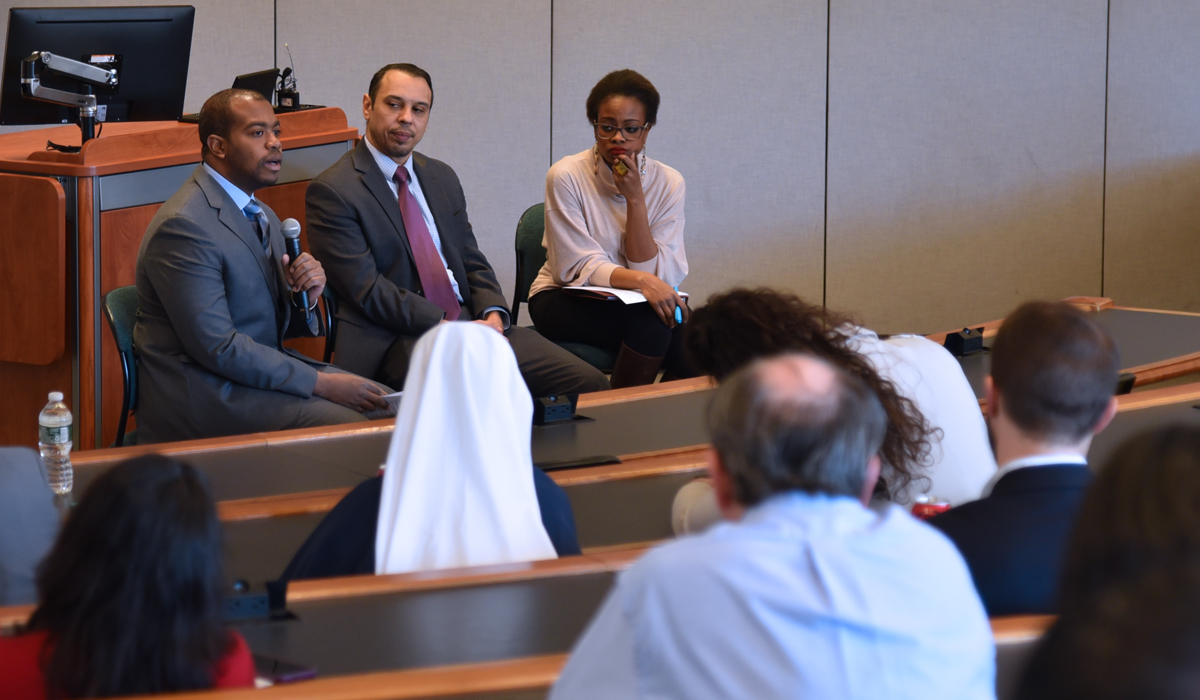On February 8, the Center for Law and Human Person (CLHP) held discussion, A New Birth of Civil Rights, at The Catholic University of America Columbus School of Law (Catholic Law) in Washington, D.C. The panel was introduced and moderated by the CLHP Associate Director and Lecturer at Catholic Law, Louis Brown. The discussion opened with the question of “What are Civil Rights?,” and with a brief history of civil rights in the United States by Roger Severino, Vice President of Domestic Policy, The Heritage Foundation, and Danielle Brown, Associate Director of the ad hoc Committee Against Racism at the United States Conference of Catholic Bishops.
The American Civil Rights movement in particular the American legal civil rights movement was based on a belief in the ideals articulated in the Declaration of Independence, that all people are created equal and endowed by God with the right to life, liberty, and the pursuit of happiness. The Declaration of Independence’s advancements of the rights to life, liberty, and happiness affirm a commitment to the equal God given dignity of every person and therefore equal justice under the law. This ideal inherently proclaims the reality that the state and the laws that govern the people in our nation must respect and protect the dignity and God-given rights of each person. Tragically, the United States failed to live up to these ideals because of the culture of death that was exhibited most dramatically in the form of the institution of slavery and the racism and the dehumanization of Native Americans.
Even after the Emancipation Proclamation, the U.S. failed to live up these ideals due to Jim Crow segregation, and decades of discrimination, and dehumanization. An American civil rights movement based on love of God and love of neighbor arose, in the form of the abolitionists movement in the 1800s, and in the form of the 20th Century civil rights movement and its drive for desegregation and racial equality. These movements, based on the equal dignity of the human person, drove out slavery through the enactment of the 13th and 14th Amendments. And these movements drove U.S. segregation and much of the legalized forms of racial discrimination through the enactment of the Civil Rights Act of 1964, the Voting Rights Act of 1965, and the Fair Housing Act. Following the discussion, the panelist took questions from the audience.
Danielle M. Brown, Associate Director of the ad hoc Committee Against Racism at the United States Conference of Catholic Bishops (USCCB), was born and raised in the Archdiocese of Detroit. She is a lawyer licensed in the State of Michigan. Before coming to the USCCB in May 2018, she served on several boards, commissions, and ministries in Lansing, Michigan, including co-founding and leading one of Renewal Ministries’ first young adult discipleship chapters, I.D.916, now known simply as I.D. She was also a diocesan delegate at the USCCB Convocation of Catholic Leaders and the National Black Catholic Congress in 2017. Previously, she was a three-time governor appointed appellate administrative law judge in the State of Michigan, and an assistant deputy legal counsel to the Governor of the State of Michigan.
Roger Severino is vice president of domestic policy and The Joseph C. and Elizabeth A. Anderlik Fellow at The Heritage Foundation. Severino is a national authority on civil rights, conscience and religious freedom, the administrative state, and information privacy, particularly as applied to health care law and policy. Severino spearheaded the HHS Accountability Project while a Senior Fellow at EPPC from 2021 – 2023. Previously, Severino was director of HHS’ Office for Civil Rights, where he led a team of over 250 staff enforcing our nation’s civil rights, conscience and religious freedom, and health information privacy laws. He served from 2017 to 2021 and was the longest-serving OCR director of the past three decades. Prior to joining HHS, Severino served for two years as director of the DeVos Center for Religion and Civil Society at Heritage, advocating for life, family, and religious-freedom policies. Before that, he was a trial attorney for seven years at the U.S. Department of Justice’s Civil Rights Division where he enforced the Fair Housing Act and the Civil Rights Act of 1964. Severino started his legal career at the Becket Fund for Religious Liberty, where he was legal counsel and chief operations officer and defended the rights of people of all faiths under federal and international law.



